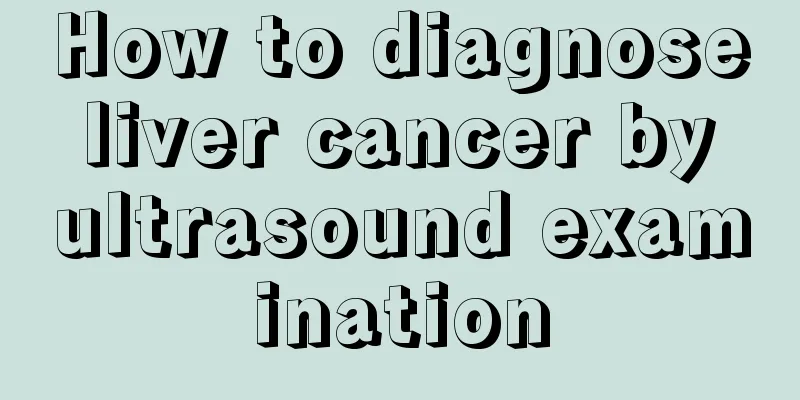How to diagnose liver cancer by ultrasound examination

|
Conventional ultrasound examination has now become the preferred method for screening liver space-occupying lesions. The most commonly used examination in hospitals is type B ultrasound examination, referred to as B-ultrasound. How it works It uses the different signal light spots generated by the reflection of sound waves from different tissues of the human body to form cross-sectional images of the human body. These images can intuitively show the internal anatomy of human organs, including the size of the organs, the shape of the blood vessels, the presence or absence of space-occupying lesions inside, as well as the shape, texture, and size of the lesions. It has unique advantages in distinguishing between solid and liquid spaces. Diagnosis Ultrasound imaging is now indispensable for the diagnosis of liver cancer. Liver cancer tissue has lost the normal structure of liver tissue. Under ultrasound, it can be seen that the cancer tissue presents different echoes compared with the surrounding normal liver: small liver cancers often present as mixed hypoechoic areas, and there is often a liquefied necrotic area in the center. After the emergence of color Doppler ultrasound, it is possible to distinguish liver cancer from liver hemangiomas and other benign intrahepatic lesions by detecting the blood supply of liver space-occupying lesions. If color Doppler detects the arterial blood flow spectrum and the blood flow index exceeds 0.7, this is an important basis for diagnosing liver cancer.New Technology In recent years, contrast imaging technology has been combined with ultrasound imaging to accurately display the characteristics of blood supply inside the tumor. For example, after injection of ultrasound contrast agent, significant enhancement can be seen in the liver cancer nodules in the arterial phase, while the lesions quickly become lower echoes than the surrounding liver parenchyma in the portal venous phase. Ultrasound contrast imaging has further improved the accuracy of ultrasound diagnosis of liver cancer and can accurately distinguish benign lesions from malignant tumors. |
<<: Pay attention to the early symptoms of pancreatic cancer
>>: Who are the most susceptible groups to pancreatic cancer
Recommend
What are the dangers of tooth extraction
We all know that teeth play a relatively importan...
Ultrasound grading of thyroid nodules
For many diseases, we need to use professional me...
What are the benefits of Red Baby Ointment for skin allergies
Goodbaby ointment is a common baby product. Becau...
The harm of red nematodes
Red nematodes are also called water earthworms. T...
Can I use milk on my face?
Breast milk is the key to breastfeeding. The nutr...
The inheritance rules of curly hair
Many children have curly hair when they are born....
Is it okay to boil mineral water repeatedly?
Water is essential to sustain life. Drinking wate...
What are the dangers of Toxoplasma gondii
Many people may not be very familiar with Toxopla...
What is the basis for the diagnosis of hamartoma
Everyone is familiar with hamartoma. It is a terr...
If you don't pay attention to these 9 points when washing your hair, your hair quality will get worse and worse
As soon as I wash my hair, I start to lose hair, ...
Symptoms of nasopharyngeal carcinoma stage 1, 2 and 3
Nasopharyngeal carcinoma is a malignant tumor tha...
Normal heart rate for 37 years old
As the saying goes, men are in their prime at 31,...
How to quickly find the sleeping point
To quickly find the sleep points, you need to fol...
What does spoiled red wine smell like
Red wine is a common type of alcohol. Many people...
What are the preventive measures for rectal cancer
Rectal cancer is a common malignant tumor in the ...









